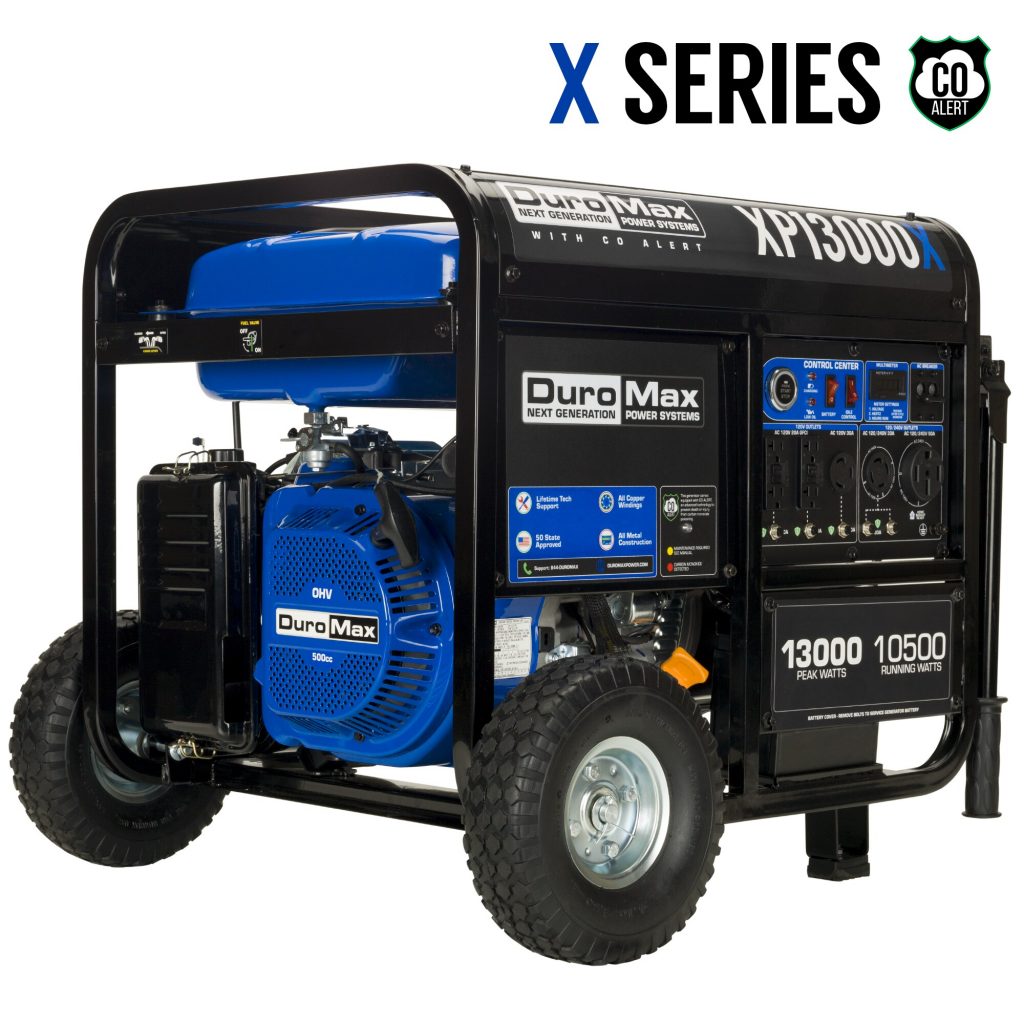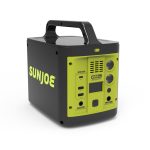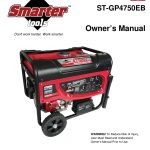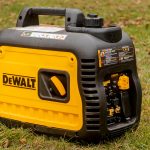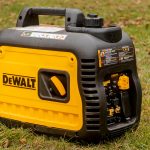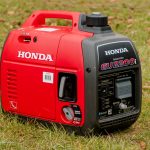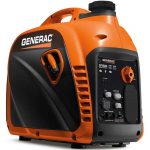When you’re looking for a generator near you to power your home, it’s important to determine what size generator you need. The size of the generator is determined by the number of appliances and devices you have in your home and the total watts you’ll require for power. You’ll need to know the wattage of each appliance or device that you plan to power. This is typically found in the owner’s manual or on the back of the appliance. Once you know the wattage of each item, add up all the wattage numbers to get the total watts you’ll need.
The generator you purchase should have an output of at least 10 percent higher than the total calculated wattage. For example, if you need a total of 5,000 watts, the generator you purchase should have an output of at least 5,500 watts. You may also need to consider if you’ll need a generator with surge wattage. This is the wattage needed to start large motor-driven appliances or devices like refrigerators, air conditioners, and furnaces. Most appliance and device owners’ manuals will list the start-up wattage in addition to the running wattage. To ensure your generator is powerful enough to meet your needs, make sure to do your research and calculate the total wattage of all of the devices you plan to power. This will ensure you purchase the right size generator to power your home.
How do you plug a generator into your house?
If you’re looking to plug a generator into your house, finding a generator near you is the first step. Most hardware stores, home improvement stores, or online retailers will have generators available in a variety of wattages. Once you’ve acquired your generator, you can begin the process of connecting it to your home’s power. Begin by making sure the generator is properly grounded. Grounding is an important safety measure and it’s important that this step is done correctly.
You’ll then need to install a manual transfer switch, which is a device that allows you to connect the generator to the circuit breaker panel in your home. This switch will need to be properly sized, so you’ll need to consult a qualified electrician to ensure it’s installed correctly. Next, you’ll need to connect the generator to the manual transfer switch. This can be done by running a properly sized wire from the generator to the switch. Ensure the wire is rated for outdoor use, as it will need to be able to withstand the weather. Finally, you’ll need to connect the generator to the outlets in your home. This can be done using a generator extension cord, which will allow you to plug the generator into the outlets in your home. With these steps, you should be all set to plug your generator into your home. Be sure to always follow the instructions that came with the generator to ensure that you’re doing it safely and correctly.
How many watts does it take to run a 3 bedroom house?
Are you looking for a generator near you to power a 3 bedroom house? Depending on what kind of appliances you’re running, the wattage requirement can vary. Typically, though, you’ll want a generator that can handle at least 7,500 watts. That’ll cover most of your household needs, from powering your refrigerator and lights to charging your laptop and running the AC. You might want to aim for a generator with at least 10,000 watts if you plan to run multiple appliances at once. That way, you can avoid overloading the generator and running into technical issues.
It’s important to make sure the generator you choose is up to the task of powering your house. When shopping for a generator, you should consider not just the wattage capabilities but also the size, fuel type, and noise level. Make sure to understand the generator’s maintenance requirements and safety features too. With this information, you can find the right generator to power a 3 bedroom house.
What is the best generator to buy?
Finding the right generator near you can be daunting. But it doesn’t have to be. When shopping around for a suitable generator, consider the size of the generator you need, as well as its fuel type. For instance, if you’re looking for a generator to use around the house, you may want to consider a smaller, portable gasoline powered generator. These generators are easy to store, and can be used for powering a wide range of appliances and gadgets.
On the other hand, if you’re looking for a generator to power larger appliances, such as air conditioners or refrigerators, you may want to go for a more powerful and durable diesel or natural gas generator. Finally, make sure to research the generator’s noise level, as well as its cost and warranty before you make a purchase. This will ensure that you’re getting the best generator for your needs and budget.
What is the best generator for home use?
If you are looking for a generator for home use near you, the best option is to purchase a generator that is reliable and efficient. When shopping for a generator, consider the type, size, cost, and fuel source. Portable generators are convenient and provide backup power during outages, while standby generators are better for long-term power needs. Ultimately, the best generator for home use is the one that suits your needs and budget. When selecting a generator, it is important to consider the wattage requirements for the appliances and electronics in your home.
Most generators are rated in kilowatts (kW) or wattage, and provide continuous or rated power. Make sure to get a generator that can handle your home’s total electrical load. It is also important to consider fuel type and cost when choosing a generator. Generators that run on gasoline, diesel, propane, or natural gas are all good options. Choose a generator that runs on a fuel that is readily available and economical. In addition, you should consider the noise level of the generator. Portable generators can be quite loud, so make sure to check the noise level before you buy one. Finally, consider the warranty of the generator. Most quality generators come with a two-year warranty, so make sure to read the warranty before you make your purchase. With the right generator and proper maintenance, you can ensure reliable power for your home for years to come.
How much does a whole house generator cost?
Finding the cost of a whole house generator near you can be a daunting task. However, depending on the size and type of generator you are looking for, you can expect to pay anywhere from $1000 to $10,000 or more. The size of the generator, type of fuel it runs on, and if it’s an automatic system all play a role in the cost. If you are looking for a cost-effective option, you may consider getting a manual transfer switch system. These can be found for as little as a few hundred dollars, with installation typically not costing more than a few thousand.
When it comes to fuel sources, natural gas is usually the most cost-effective. Electric or propane are also popular choices. All of these fuel sources have their own benefits and drawbacks, so it’s important to do your research and determine which type of generator and fuel source is best for you. If you want a fully automatic system, you will need to factor in the cost of installation, which can range from a few thousand to tens of thousands. However, these types of generators can provide more efficient and reliable power than manual systems, and may be worth the additional cost. In summary, the cost of a whole house generator near you can vary depending on many factors, but can range from a few hundred for manual transfer switch systems to tens of thousands for fully automatic systems. It’s important to do your research and determine which type and fuel source is right for you.
What is the best electric generator?
Finding the best electric generator near me can be a difficult task. Some factors you should consider when selecting a generator are size, power output, fuel type, and noise level. Smaller generators generally cost less, but may not have enough power output for your needs. Larger generators tend to be more expensive, but often provide more output. Depending on your location and needs, you may need to choose a generator that runs on gasoline or diesel fuel.
Noise level is also an important factor. Many people prefer quieter generators, which can be more expensive. However, some generators are designed to be extra quiet and are therefore more expensive. In addition to size, power output, fuel type and noise level, it is important to consider the warranty, features, and the overall cost. Make sure to research the best type of generator for your area and power needs before purchasing one. Overall, choosing the best electric generator near me depends on your individual needs. Do your research and select the generator that best suits your needs and budget.
What size generator is needed to power a house?
If you are looking for a generator near you to power your house, you need to consider the size of the generator. The size you need depends on the size of your home, the size of the appliances you plan to power, and the amount of power you need to run your home comfortably. If you want to power your entire home, you need a generator that can provide between 10,000 and 12,000 watts. This will provide enough power to run your appliances, lights, heating, and cooling. If you only need to power a few items, like a refrigerator or a couple of lights, then a smaller generator between 2,000 and 4,000 watts will do the job.
Regardless of the size of the generator, you should always make sure to get one from a reputable manufacturer. This will ensure the generator is reliable and able to provide the power you need for your home. Finally, make sure to purchase a generator with the right size fuel tank for your needs. If you need to run the generator for extended periods of time, you should get one with a larger fuel tank. This will ensure you have enough fuel to power your home when needed.
What kind of generator is best for home use?
If you are looking for a generator near you for home use, it’s important to understand the different types available. Generators for home use come in two primary categories: standby and portable. Standby generators are permanently connected to your home and will automatically turn on in the event of a power outage. They are more reliable and provide more power than their portable counterparts, making them ideal for powering large appliances or keeping the entire home running during a blackout. Portable generators are ideal for occasional use, such as camping trips or outdoor events.
These generators are typically smaller and less powerful than standby models, but they are much more affordable and can be used in any location. When choosing a generator, consider your needs and budget. If you need a reliable, permanent power source for your home, a standby generator is probably the best choice. But if you only need a generator occasionally and don’t need a lot of power, a portable model may work better for you. No matter which type of generator you choose, make sure to read the manufacturer’s instructions and use it safely. Store the generator in a dry place and never use it indoors, as it can produce dangerous levels of carbon monoxide.
What size generator do I need to run a refrigerator?
Finding the right size of generator to run a refrigerator can be tricky. Fortunately, there are many generators near you that can provide the necessary power. If the refrigerator that you need to run is an older model, you will need a generator with at least a 5,000 watt output. For a larger model, you will need a generator with an output of at least 7,500 watts. It is important to note that these numbers are just a minimum requirement.
If you are running multiple appliances, like a freezer in addition to a refrigerator, you will need a generator with a higher wattage output. In addition, you should also make sure the generator can handle the additional power draw of having the refrigerator running. For example, a generator with an output of 5,000 watts will not be able to handle the load of two appliances running at the same time. It is also important to consider the size of the generator. The larger the generator, the more power it will be able to supply. This means that you may need a larger generator if you are running multiple appliances or if you want to ensure a longer running time. Overall, the size of the generator you need to run a refrigerator will depend on the size of the refrigerator, the number of other appliances you are running, and the maximum amount of power you need to supply. Doing research on the specific models and sizes of generators available near you is the best way to make sure you get the right size for your needs.
What is the cheapest way to hook up a generator to your house?
Are you looking for the cheapest way to hook up a generator to your house? If you live in an area with a lot of electrical outages, having a generator nearby can be a great solution. There are a few ways to hook up a generator to your house, including hardwiring it directly into your home’s electrical system, using an adapter that plugs into a wall outlet, or using a transfer switch. If you’re looking for the cheapest way to hook up a generator, you may want to look into using an adapter that plugs into a wall outlet. This is often the least expensive option and can easily be installed by the average person. Before you purchase any generator, make sure you check for any “generator near me” deals or other discounts that may be available.
This could save you a lot of money in the long run. In addition, you should make sure the generator is compatible with the wattage requirements of your house. If the generator has too much wattage, it could damage your appliances. If it has too little wattage, it won’t be able to power all of your appliances. Overall, finding the cheapest way to hook up a generator to your house can be done if you do your research and shop around for the best deals. Be sure to look for “generator near me” deals and make sure the generator is compatible with the wattage requirements of your house.
How much should I pay for a generator?
If you are looking for a generator near you, it’s important to know how much you should pay for it. In general, the price of a generator depends on its type and size. If you are looking for a small portable generator, it can cost between $400 and $800. However, larger and more powerful generators can cost up to several thousand dollars. It is also important to consider the quality of the generator.
A higher quality generator will be more reliable and will last longer, but it will usually cost more. It is usually worth spending more money on a higher quality generator as it will save you money in the long run. If you are unsure about what type of generator you need, it can be helpful to speak to an expert who can provide advice and recommend the best model for your needs. It is also important to consider the running costs of the generator. The amount will depend on how often the generator is used and the type of fuel it uses. Generally, diesel-powered generators are more efficient than gasoline-powered generators, but they are typically more expensive. To make sure you get the best value for money, it is always a good idea to shop around and compare prices between different generators. This will allow you to find the most suitable generator for your needs at the best price.
What size generator do I need to run a refrigerator and freezer?
Are you looking for the right generator for your refrigerator and freezer? If so, you’ve come to the right place. When considering a generator for powering your household appliances, it is important to know the size of unit you will need. The size of generator you need to run your refrigerator and freezer depends on the wattage of the two appliances. Although adding up the wattages of the two appliances will give you an idea of the size of generator you need, it is important to note that the wattage should be multiplied by 1.5 to account for the start-up surge. Additionally, it is important to ensure that you have a unit with a sufficient capacity.
To do this, you can compare the running wattage of your refrigerator and freezer with the surge wattage of the generator. If you’re looking for a generator near you, make sure to choose one that can meet the wattage requirements of your refrigerator and freezer. A generator that is too small may not be able to power both appliances and may cause damage.
What is the smallest generator that can power a house?
This size of generator is usually used for providing power to smaller homes, RVs and camping tents. It is capable of powering basic appliances such as a refrigerator, laptop and few lights. For larger homes, a higher wattage generator is recommended. These may include 8,000 to 10,000 watt generators. These generators are typically used to power larger appliances such as an air conditioning unit, water heater and multiple lights.
They may also be used to power any additional electronic equipment in the home. When choosing a generator, it is important to consider the wattage needs of your home and the type of fuel you wish to use. Most generators run on gasoline, diesel or propane. Some may also have a hybrid option that runs on both fuel and electricity. When searching for a generator near you, it is always best to compare the wattage, size and type of fuel offered. This will ensure you find the best generator to power your home. Remember to always check the manufacturer’s instructions and safety guidelines for using and maintaining the generator. This will ensure that it is used safely and properly.
How big of a generator do I need to run central air?
If you’re looking for a generator to run your central air conditioning system, it’s important to know how big of a generator you need. The size of the generator you’ll need depends on the size and power of your air conditioner. Generally, you should look for a generator that can produce at least 10 kilowatts of power. Fortunately, there are many generators available to purchase near you. Depending on your budget and preferences, you can find different models and sizes.
Most generators are rated in terms of power output, so make sure you pick one that meets your needs. It’s also important to consider the fuel source when selecting a generator. If you plan to use it during a power outage, you’ll want a generator that runs on gasoline or propane. If you’re using it for recreational purposes, such as for camping, you may want to opt for a generator that runs on diesel. When purchasing a generator, be sure to read the safety instructions and make sure you follow them. Make sure you know how to safely operate and store the generator, and always use it in a well-ventilated area. Overall, when you’re looking for a generator to run your central air conditioning system, be sure to consider your budget, the size and power of your air conditioner, and the fuel source. With the right generator, you can keep your home cool and comfortable no matter what.
How do I hook up a generator to my house?
If you’re looking for a generator near you, you’ll need to be sure it can be hooked up to your house. After finding the right generator, you’ll need to determine where you’ll place it and how to run the wiring. To connect the generator to your home, you’ll need to make sure it has the correct output capacity and voltage for your home’s wiring. You’ll also need to be sure you can safely access it, and that it is located away from any combustible materials. Next, you’ll need to install a transfer switch to connect the generator to your home’s main power panel.
This switch will ensure that your generator is not connected to the power grid. Finally, you’ll need to make sure your generator is properly grounded, and that it has the proper fuel supply. You’ll also want to make sure it has been installed in a safe and proper manner, and that it is regularly maintained. Having a generator near you is a great way to have a reliable source of electricity in an emergency. Following these steps will help you get your generator hooked up safely and efficiently.
Where can I rent a portable generator?
If you’re looking for a portable generator near you, there are several options for renting one. Depending on the area, you may be able to find a rental shop nearby that offers portable generators for rent. You can also look online for rental companies that will deliver the generator to your location. Renting a generator is a great way to have access to temporary power when you need it most. Portable generators are ideal for powering a variety of items such as tools and outdoor equipment, and can provide you with power in a pinch.
When renting a generator, it is important to make sure it is in good condition and meets your power needs. You should also inquire about rental policies and fees, delivery options, and maintenance requirements. It’s also important to check what type of fuel the generator requires, and ensure that you have the right type of fuel on hand. Depending on the type of generator, fuel may range from gasoline to propane. Finally, it’s important to familiarize yourself with safety procedures and safe operating practices before using your rented generator. Taking the time to do so will help ensure that you use the generator safely and effectively.
What is a Honda portable generator?
Are you looking for a portable generator near you? Then look no further than a Honda Generator. Honda portable generators are reliable and powerful, making them a great choice for power outages or off-grid activities. They provide an efficient and cost-effective way to generate electricity when you need it most. Honda generators are built for performance and reliability, and are designed to stand up to the toughest outdoor environments. They have a compact design and portable construction, making them easy to transport.
They also have a variety of features including overload protection, low oil shut-off, and low noise levels, making them perfect for both professional and recreational applications. Honda portable generators are available in a variety of sizes and power ratings, making it easy to find one to suit your needs. Whether you’re looking for a powerful generator to run a construction site or a smaller one to power a camping trip, Honda has a generator for you. For those looking for a reliable and efficient portable generator near them, Honda is a great choice. With a wide selection of models to choose from, and features designed to make your life easier, a Honda generator is the perfect choice for any power outage or outdoor activity.
What is the best inverter generator?
Finding the best inverter generator near you can be a difficult task, but with a little research you can find the right one. An inverter generator is a type of portable generator that produces clean, stable power that is suitable for powering electronics like TVs, computers and power tools. They are also quieter and more fuel efficient than traditional generators. When shopping for an inverter generator, it is important to consider the features, power output, and noise level. Look for one with variable speeds, a low decibel rating, and a range of power outputs.
It should also be easy to maintain and have a long warranty. The best inverter generator for you will depend on your needs. Consider how much power you need, how often you plan to use the generator and the noise level you are comfortable with. Some models are also better for powering sensitive electronics. For added convenience, look for an inverter generator with an electric start and other features like a fuel gauge and outlets with circuit breakers. Having a generator with a digital display can also help you to easily monitor the performance of your generator. To find the best inverter generator near you, research different models and compare features. You can also ask friends or family who own one for advice or read online reviews. With a little bit of effort, you can find the right inverter generator for your needs.
What is the best predator generator?
The best predator generator near me is one that is reliable and powerful enough to provide electricity for your home or business. It should be made with quality materials, and with the latest technology, to ensure that it can run effectively and efficiently. The generator should also be easy to use and come with features such as an automatic start and stop, remote control operation, and a low noise level. The generator should also be properly rated to provide the right amount of power for your specific needs. It should be able to handle sudden load changes without any disruption, and should be able to run for a long period of time without needing to be replaced.
To make sure you get the best predator generator near you, you should research the different brands, models, and features available. You should also consider the cost, as some higher-end models can be expensive. Once you’ve done your research, you should look for a local supplier who can provide you with the best possible deal. Finally, you should make sure the generator is properly maintained and serviced. This will help ensure that it runs optimally, and that any potential issues are quickly identified and repaired. With the right generator near you, you’ll be able to have reliable, efficient power for your home or business.
What is the cost of a whole house generator installed?
If you are looking for a generator near you, you may want to consider the cost of a whole house generator installed. The cost typically depends on the size of the generator and the complexity of the installation. For a standard-sized generator, the cost can range anywhere from around $3,000 to $7,000. This price will cover the cost of the generator, installation, and any necessary permits. If you require a larger generator, the cost can increase significantly.
Additionally, if your area requires a special permit or additional labour, the cost can also rise. These extra costs can add up to between $2,000 and $5,000 extra. Finally, it is important to keep in mind that installation costs may vary depending on where you are located and the availability of contractors. If you are in a remote area, for example, you may have to pay additional fees for travel costs. In summary, the cost of a whole house generator installed will vary depending on the size and complexity of the installation, as well as the location and availability of contractors. The cost can range from around $3,000 to $12,000, depending on the individual circumstances.
Do I need an electrician to connect a generator to my house?
If you are looking for a generator to connect to your house, then you will need to hire an electrician. An electrician is qualified to make the connection safely and correctly, as well as troubleshoot any potential issues. When searching for an electrician, it’s important to find one near you that has experience with generators. To help you locate an electrician, you can begin by searching online for “generator near me.” This will generate a list of electricians in your area that are familiar with connecting generators to houses. Once you have this list, you can read reviews, ask around for recommendations, and contact the electricians directly to compare prices and services.
In addition to connecting a generator to your house, an electrician can also provide advice on the different types of generators available and help you decide which one is best for you. They will also be able to assist in the installation of the generator and make any necessary modifications. Finally, it is essential to make sure the electrician you hire is licensed and insured. This will ensure that you and your home are protected in case of any accidents or unforeseen events. In conclusion, if you are looking for a generator to connect to your house, then you will need to hire an electrician. Make sure to research electricians near you and ensure they are licensed and insured. With the right electrician, you can be sure your generator is connected safely and properly.
Can you just hook up a generator to your house?
If you’re looking for a generator near you, you may be wondering if it’s possible to hook it up to your house. The answer is yes, you can hook up a generator to your house. However, it’s important to plan ahead, as there are a few steps you need to take in order to properly and safely hook up the generator to your house’s electrical system. First, you’ll need to make sure the generator is the right size for your needs. You should also make sure it has the right output for your home’s power needs.
It’s important to remember that connecting a generator directly to your home’s electrical system can be dangerous if done incorrectly, so it’s best to get a professional to help you out. You’ll also need to install a transfer switch to make sure the power from the generator is directed safely to the right circuits. This switch also prevents power from the generator from entering the utility lines, which can be dangerous. Finally, you’ll need to make sure the generator is properly grounded. This will help prevent shocks and other electrical problems. Overall, it’s possible to hook up a generator to your house, but it’s important to plan ahead and get the help of a professional.
What size generator would it take to run a house?
If you are looking for a generator near you to power your house, you will need to consider the size of generator you need. Your house’s power requirements will depend on a variety of factors such as the size of your house, the number of large appliances you have, and the type of power your house requires. A small generator may be able to handle the basic needs of a house such as providing power for small appliances and lights. However, if you have multiple large appliances such as an air-conditioner, fridge, or other large electrical items, then you will need to look for a larger generator. Generally, a large standby generator with a 15kW minimum rating is recommended for running a typical house, although the exact size and type of generator you need will vary depending on your specific home.
How much does it cost to run a whole house generator for 24 hours?
A whole house generator near me typically costs around $0.36 to $0.45 per kWh to run for 24 hours. This means that it would cost between $86.40 and $108 to run a whole house generator for a full day. However, the exact cost of running a whole house generator for 24 hours depends on the size of the generator and the amount of power it uses. The bigger the generator, the more power it will use and the more expensive it will be to run. The cost of gasoline or diesel required to run the generator must also be considered when calculating the total cost.
Depending on the current market price, it can cost anywhere from $42 to $90 to run a whole house generator for 24 hours. Finally, you must factor in the cost of maintenance and repairs. A regular maintenance schedule can help keep costs down, but even with regular servicing, there may be unexpected repair costs. Overall, the cost to run a whole house generator for 24 hours can vary depending on the size, power consumption and fuel costs. However, it is usually around $86 to $180 for a full day.
Why are generators all sold out?
It is no surprise that generators near me are all sold out. The demand for generators has been rapidly increasing as many people are preparing for potential power outages. This is due to the increased frequency of natural disasters and severe weather conditions worldwide. Generators can prove to be a life saver in times of emergency. They provide an alternate source of electricity when the power grid fails.
This is especially beneficial for those who rely on electricity for medical equipment and other essential needs. Generators also provide an economical and efficient way to power various devices. Many people use them to run air conditioners, refrigerators, lights, and other appliances. This allows them to continue their daily lives without worrying about power outages. The fact that generators near me are sold out may be a sign that people are becoming increasingly aware of the importance of being prepared. It is important to stay vigilant and ensure that you have a generator in case of a power outage. This will help you remain safe and comfortable during a blackout.
How long is the wait to get a Generac generator?
Finding a Generac generator near you can often be a very time consuming task. Depending on your location and availability, the wait to get a Generac generator can vary significantly. In some locations, you may be able to buy a Generac generator right away. In other places, the wait can be a few days, weeks, or even months. It is important to consider the availability of the Generac generator before you decide to purchase one.
If the generator is available for purchase right away, then the wait time is minimal. However, if the generator is not available immediately, then the wait time can be much longer. It is recommended to research the availability of the Generac generator before you make a decision to purchase one. You can contact your local dealer or search online for the availability of the generator near you. In addition, you should also consider the cost of the generator before you decide to buy it. Generac generators can be quite expensive, so it is important to make sure you are getting a good price.
What is the lifespan of a generator?
A generator near me has a lifespan that depends on the type, size, manufacturer, and usage of the generator. Generally, the lifespan can range from 5-15 years, depending on the type of generator. Smaller generators tend to have a shorter lifespan due to the fact that they are subject to more wear and tear than larger generators. To ensure the longest possible lifespan of your generator, it is important to properly maintain and service your generator according to the manufacturer’s guidelines. This includes checking and changing the oil, changing the air filter, and checking the fuel lines, among other tasks.
Finally, it is important to remember that the environment in which your generator is kept also has an impact on its lifespan. For example, an outdoor generator that is exposed to severe weather can have its lifespan shortened due to rust and corrosion. Overall, with proper maintenance and care, a generator near me can have a lifespan of between 5-15 years. However, this lifespan can be shortened if the generator is not properly serviced and maintained, or if it is exposed to extreme weather conditions.
